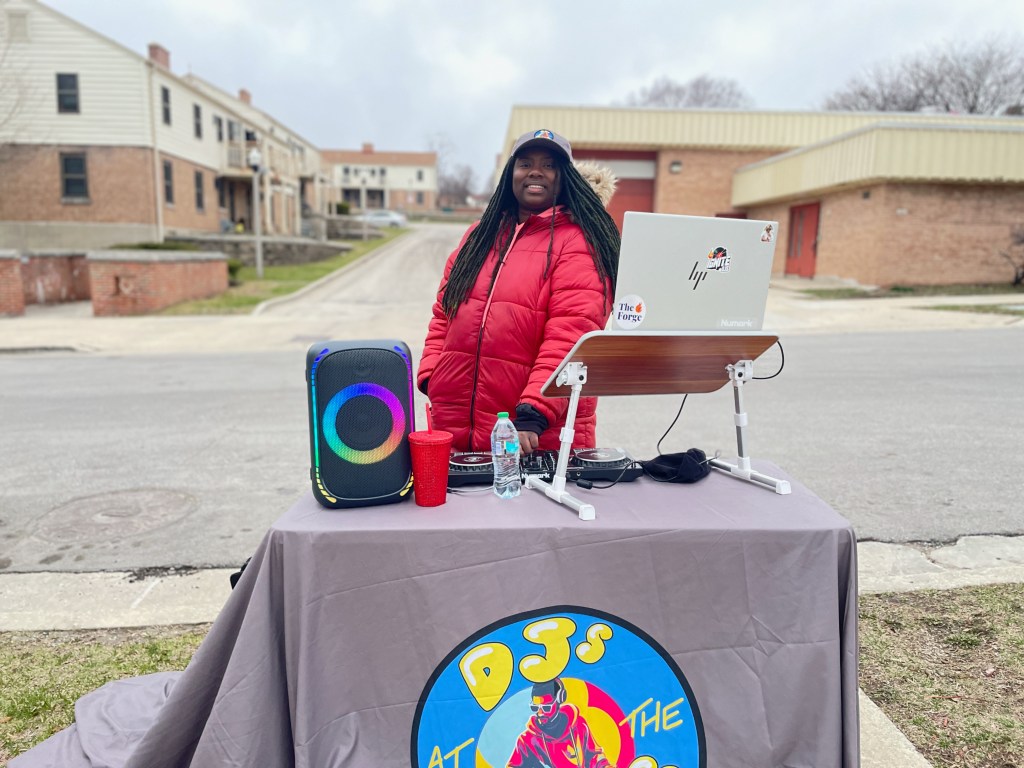
Telling MAGA It’s Raining (with Will Sommer)
April 5, 2025
Trump’s Stubborn Ignorance Shines Bright
April 5, 2025It was a frigid spring day shortly before polls closed in Wisconsin. Chanita Edwards and her daughter, Chamari, left their polling place in Milwaukee’s North Side with two concerns: Elon Musk and reproductive rights.
“I voted because I’m a woman and those rights are very important to me, especially abortion rights, and I’m a student,” said Chamari Edwards, 20. “With Elon, I don’t need them to mess with my tuition and my school stuff, so I voted against them.”
Chanita and Chamari were among the Black voters across the state who participated in Wisconsin’s April election, where a state Supreme Court race between Susan Crawford and Musk-backed candidate Brad Schimel garnered headlines for its potential national implications. For those who spoke to Capital B on Election Day, their vote was intended to be a direct rebuke of President Donald Trump and Musk. Still, it remains to be seen whether this momentum will be carried over into the 2026 midterm elections and beyond.
Musk, the Tesla CEO whom Trump assigned to run a newly created “Department of Government Efficiency,” has initiated cuts to government services and personnel, including the Department of Education. Education advocates and other critics of the moves say the cuts will adversely impact student loans and other social programs, and it has the potential to disproportionately harm Black students.
Musk poured at least $20 million into Schimel’s campaign, perhaps in no small part because the Wisconsin Supreme Court will rule on a lawsuit Musk filed involving Tesla sales in the state. Trump wrote on social media about the importance of the election, pushing for Wisconsin residents to “swamp the vote” for Schimel.
Instead, in Milwaukee, a predominantly Black city that is also the most populous in the state, the voter turnout rivaled that of presidential primaries. Crawford defeated Schimel by a ratio of 4 to 1 in Milwaukee County, as she captured nearly 75% of the vote.
Although Trump wasn’t on the ballot, his association with the race generated interest among some Black voters.
One Milwaukee resident, a 59-year-old by the name of Jesse (who didn’t share his last name), spoke primarily about defeating Trump. “They let Trump get in, so we gotta stop what he got going on. He told you what he was going to do. Nobody believed him. It can get worse,” he said.
Some Milwaukeeans said that supporting abortion rights was a central motivation when they cast their ballots. Throughout her campaign, Crawford criticized Schimel’s advocacy for a state law from the 1800s that bans abortion except when it protects a mother’s life.
“It was important for me to not only tell my daughter that she needs to do her civic duty, but to do my civic duty as well [regarding] abortion rights and women’s health in general,” said Chanita Edwards. “I feel like white men shouldn’t have a say so in what we do with our bodies.”
Huel Sanders, 40, didn’t intend to vote on Tuesday. But he changed his mind on Election Day after a female friend encouraged him and spoke of the importance of reproductive rights.
“Typically, I’ve just taken a back seat,” Sanders said after casting his ballot at the George Washington Carver Academy in Milwaukee’s center city.
“Someone reached out to me and said, ‘You should vote, because it’s important in relation to women’s rights.’ So it came down to me supporting a friend. It’s very interesting that in this day and age, that something like [reproductive rights] could change. It’s had huge impacts on people’s lives, not being able to make that decision by themselves.”
Former Lt. Gov. Mandela Barnes, the first Black man to win a statewide election in Wisconsin, wants fellow Democrats to embrace the victory with caution. A day after the election, he said he was “very relieved” that Crawford won, but he was still urging Democrats to formulate a platform that could capitalize on Crawford’s success.
“I don’t want Democrats to think we’re doing everything right,” Barnes said in an interview. “The terms of any judicial election set themselves. It’s pretty cut and dry what you’re voting for. [For legislative or executive races], people demand more. There’s a lot left to be desired. I don’t believe this absolves us of anything.”
Ryeisha Farmer, also known as DJ RYOT, is among the constituents demanding more. Farmer was a part of the “DJs at the Polls” initiative, which assigned DJs to designated polling places to help get out the vote on Tuesday. However, Farmer did not cast a ballot on Tuesday herself.

“I struggled because I have a solid voting history. This was the first election in a while in which I didn’t vote,” she said, while spinning outside the Hillside Terrace Family Resource Center in the city’s historically Black Bronzeville neighborhood.
“I’ve been thinking about how U.S. electoral politics have put us in a bind in terms of voting for the greater of two evils,” Farmer said. “At what point are we going to acknowledge that neither of them are supportive of my economic needs and my racial identity and all the things that flow from that — my health disparities, my economic disparities, my homeownership disparities? And when I say me, I mean little Black kids and just everybody that I know.”
Mike Wagner, a political scientist at the University of Wisconsin-Madison, warned against drawing too much from the election. In the last three state Supreme Court races, a qualified woman running from the left defeated their male opponent, Wagner noted.
However, “Musk’s involvement might have been the point where the race turned,” said Wagner, who serves as director of the university’s Center for Communication and Civic Renewal. “A lot of Wisconsin voters who might like Donald Trump did not like the way that Elon Musk campaigned in Wisconsin.” Figuratively speaking, “Musk came in and said ‘I want to use my wealth to buy you,’ and it didn’t seem to sit very well with voters.”
Whatever the election means for Democrats in future races, the increased turnout could be informative.
Barnes, who lost a 2022 U.S. Senate race to Republican incumbent Ron Johnson by just 1 percentage point, is now president of Power to the Polls WI, a community-based organization that focuses on increasing turnout among voters of color.
Barnes saw the potential of organizing to motivate voters in this election. “Power to the Polls was incredibly active,” he said. “In the wards that we were present in, we saw no less than a 40% increase in turnout compared to 2023.”
But organizing is one part of a winning formula if candidates want to build from Crawford’s win. “I think being bold, being authentic is something we’ve got to be better at,” Barnes said.
Great Job Malaika Jabali & the Team @ Capital B News Source link for sharing this story.





